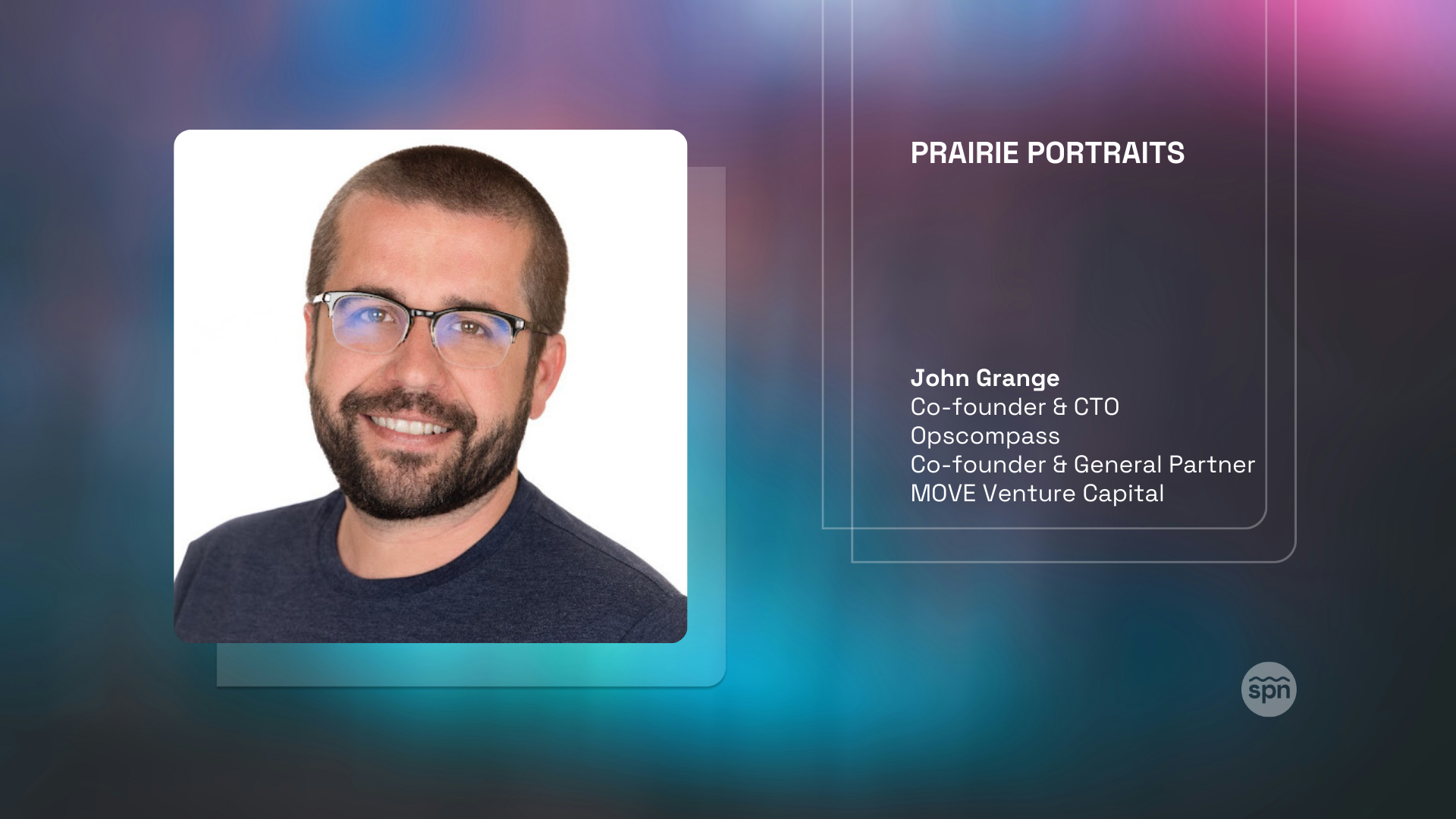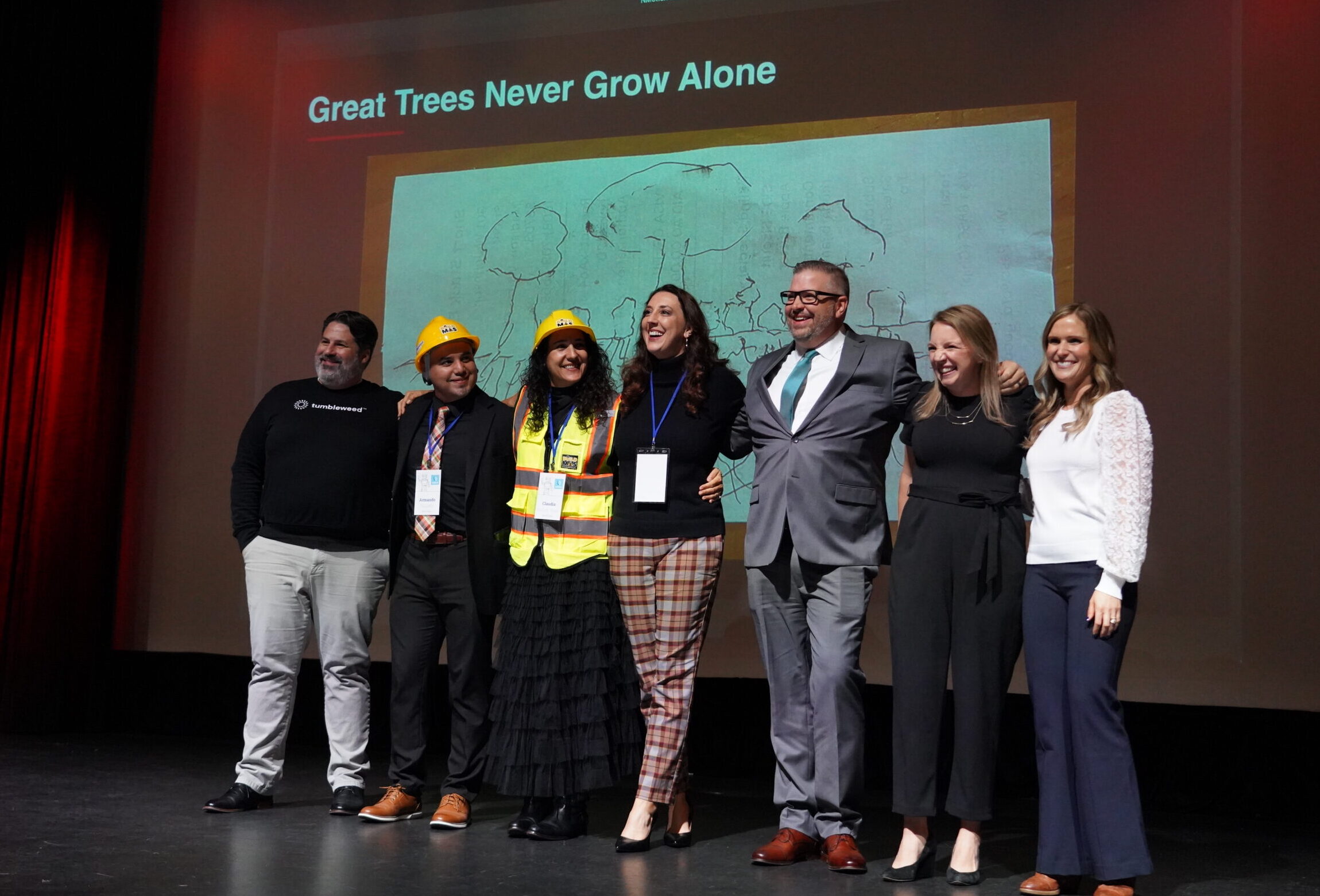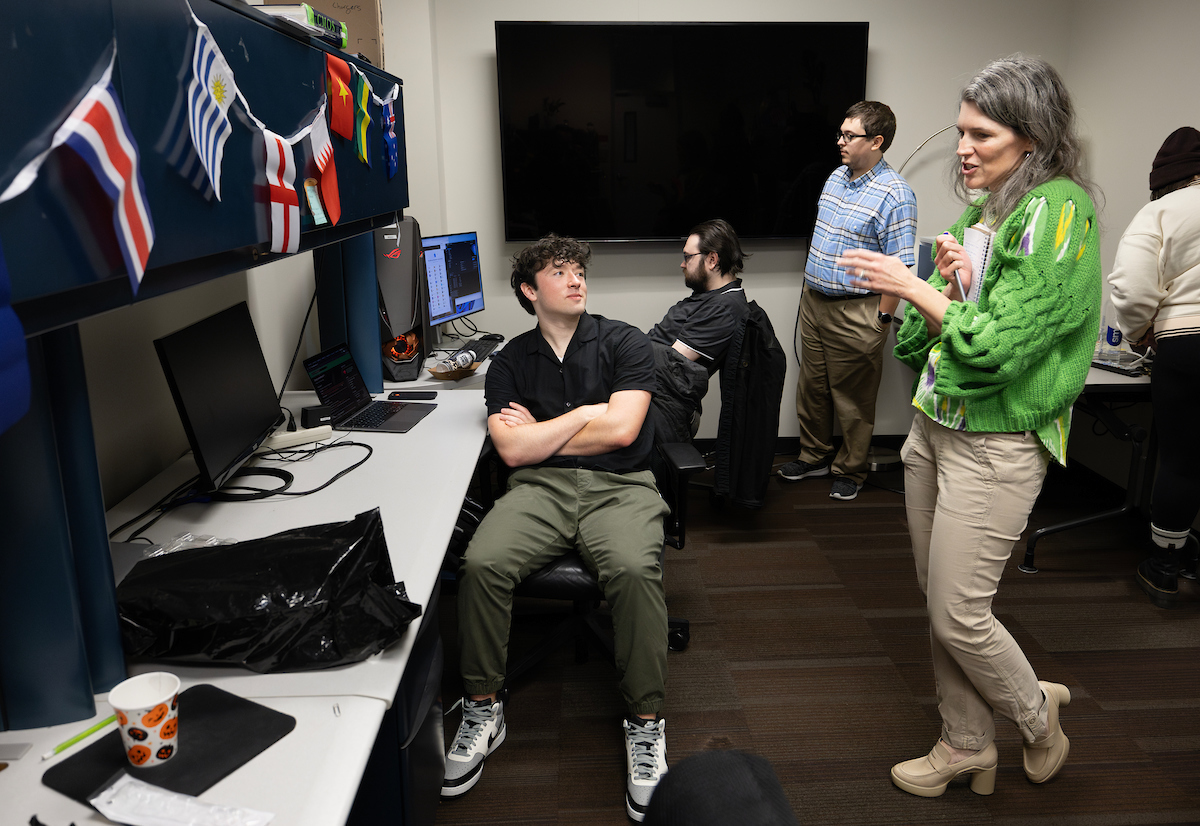 One year ago, Christian Renaud and Tej Dhawan were still pitching their plans for a tech startup incubator in downtown Des Moines. With stops at five public and private entities, including the Corporation for Economic Development, the City of Des Moines and the Greater Des Moines Partnership, the two secured $750,000 to launch StartupCity Des Moines in early October.
One year ago, Christian Renaud and Tej Dhawan were still pitching their plans for a tech startup incubator in downtown Des Moines. With stops at five public and private entities, including the Corporation for Economic Development, the City of Des Moines and the Greater Des Moines Partnership, the two secured $750,000 to launch StartupCity Des Moines in early October.
Today, the incubator boasts a spot on “Silicon Sixth,” eight resident startups (two of which are run by the co-founders), 19 mentors and a regular offering of educational programs.
Though StartupCity and its residents have received constant coverage and celebration – Renaud said it’s had about one press mention per day – we took its approaching one-year anniversary as an opportunity to sit down with the duo and check in.
I recently conducted a series of interviews with Renaud and Dhawan, including a sit-down interview early this month at StartupCity. Below are some of the highlights from our conversations.
Full-time residents
The incubator accepts tech startups it finds to have a viable idea and team – assuming it’s not in competition with an existing resident startup – and whose founders will put forth a full-time equivalence of their time.
“We have startups that will do other things on the side,” Renaud said. “I mean, Tej and I do StartupCity on the side from our startup, so we would be hypocrites to say you can’t do something else on the side.”
As of the first week of September, StartupCity had received more than 150 applications and accepted 10 of those. Eight startups, accounting for around 25 individuals, are currently part of the incubator. One “rotated out,” Renaud said, because it couldn’t fulfill its obligation to be in-house full-time. Another declined its invitation due to personal reasons.
Milestone-driven
 Upon enrolling in StartupCity, startups give the incubator a three-percent equity stake. In October, that figure will increase to five percent for new residents.
Upon enrolling in StartupCity, startups give the incubator a three-percent equity stake. In October, that figure will increase to five percent for new residents.
In turn, residents receive an office in the incubator’s space, which has an open-floor layout that encourages peer-mentoring between the startups.
The program focuses on hitting milestones, each tailored to the specific startup. Founders receive support from outside mentors and meet twice monthly with Renaud and Dhawan for private, hour-long “milestone meetings.”
“(We are) going through not only where the startup is today but what their intended two-week goals, or month goals were,” Dhawan said. “And the goals could be as simple as ‘I’m going to set up my financial records.’ ‘So, how did that go?’ “
StartupCity doesn’t put an end date on a startup’s stay, but Renaud said the time will be evident when it nears.
“If you’re slipping the slide and if you’re going to launch by February, if all of a sudden that becomes September, we’re going to have a big, long conversation,” he said.
The reason for the open end date, Renaud explained, is a belief that startups are able to do bigger things because they don’t have an arbitrary cut-off date. “Could you build a Dwolla from scratch and everything you need in a 12-week period?” he asked. “Or is that probably a little bit bigger digestible chunk than you can fit in a 12-week dev window?”
The program also presents the startups with regular educational programs, such as Lunch and Learn, and opportunities to pitch investors at StartupCity-organized “investor days.” Both of these events are open to the public.
Mentorship
Nineteen mentors, including Renaud and Dhawan, work with StartupCity residents. The amount of time each dedicates varies. Mike Colwell of the Business Innovation Zone puts in the most time at around eight hours per week, Dhawan said.
The incubator doesn’t require a minimum number of hours. Instead, it asks mentors to give what they can, when they can.
StartupCity continues to add mentors, as well, and encourages those who would like to become involved to reach out.
Political pull
Part of StartupCity’s regular event series is one titled “Tech Town Hall.” StartupCity today welcomes Iowa Gov. Terry Branstad for one, and in the past it has hosted U.S. congress members.
“We recognize that startups and Midwestern entrepreneurship in general are not top-of-mind for many of our government officials,” Renaud said. “So we spend some of our time reaching out to federal and state congresscritters to make sure they understand the role of the entrepreneur in building the economy.
“We have been fortunate enough to receive broad support from Iowa leadership in the executive and legislative branches. We have been able to engage in dialogue about taxing entrepreneurs (Braley’s “Support our Startups Act” is a good example) as well as intellectual property law (SOPA/PIPA) and immigration reform with Senators Grassley and Harkin in Iowa.”
Year one in review
Renaud called the progress of the past year – from enrolling startups to gaining notice through press – a “good start.”
“We haven’t succeeded at anything yet other than possibly just raising the visibility and water temperature in the community, because there hasn’t been a successful exit from StartupCity,” Renaud said.
Renaud and Dhawan said they expect an exit within the next five years. That said, the co-founders have learned to prepare for the unexpected.
“Our original thought had been that StartupCity, when launched, would gel tech entrepreneurship around Des Moines and maybe even some of the suburbs,” Dhawan said.
“What we found quickly was that not only did we attract the entrepreneurs and wantrepreneurs from the suburbs, but also state-wide. … So (we) had to quickly mobilize for that. It was exciting and a lesson in entrepreneurship itself that, ‘Hey, better be ready for the unexpected.’ “
A look ahead
Asked what they see for StartupCity in the 12 months ahead, both Renaud and Dhawan weighed in.
“I would see … a lot deeper engagement, getting even finer details into the eight companies here,” Dhawan said. “The two that are currently building the product, those products would be built and shipping, hopefully. New blood would have come in.”
Said Renaud: “Heads down and execute. Refine our accountability with the startups based on what we’ve learned. Probably dial back some of the broader community building things we do, too, so we can spend more time on the residents. Also, we both want to pursue intersections with biotech and advanced manufacturing and the incubation of same, and see where we can build structures to collaborate interdisciplinarily.”



